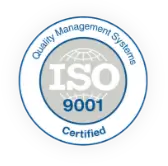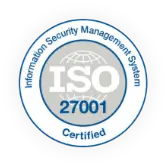Sales Efficiency in 2025: Why It Matters and How to Improve It
Boost your sales efficiency in 2025 with AI, CRM automation, and smart workflows. Learn how to optimize sales performance and increase revenue effectively.
Contact UsIn today's competitive B2B landscape, sales teams are under immense pressure to hit ambitious targets. Yet, a startling reality persists: Sales representatives spend only 28% of their week actually selling. The remaining time is consumed by administrative tasks, meetings, and other non-revenue-generating activities.
This inefficiency isn't just a minor hiccup; it's a significant drain on resources and potential revenue. Companies lose at least $1 trillion annually due to lost productivity and poorly managed leads. The root cause? A lack of focus on a crucial metric: sales efficiency.
Key Takeaways
- Sales efficiency optimizes time, resources, and ROI across the sales funnel.
- Overlooking it can result in bloated pipelines and diminished rep productivity.
- Leveraging CRM automation, AI, and integrated sales tools is essential for modern efficiency.
- Monitoring sales efficiency can provide a significant advantage in 2025 and beyond.
What Is Sales Efficiency?
Sales efficiency measures how effectively a company turns its sales efforts and resources, like time, budget, and team performance, into actual revenue. It shows how much return a business gets from its sales investments.
A common formula to gauge sales efficiency is:
Sales Efficiency Ratio = Net New Revenue ÷ Sales and Marketing Spend
For example, if your company spends $100,000 on sales and marketing and earns $300,000 in revenue, your sales efficiency ratio is 3.0. That means your business earns three dollars for every dollar spent.
A ratio above 1.0 shows efficiency, while anything below means your sales process may need improvement. Tracking this number regularly gives you a clear picture of how effectively your team turns resources into revenue.
However, this metric also encompasses:
- Time to close a deal
- Lead response time
- CRM utilization rates
- Rep productivity per activity
Why Sales Efficiency Is Often Overlooked
Despite its importance, sales efficiency is frequently absent from primary KPIs. Here's why:
Overemphasis on Volume Metrics
Sales leaders often prioritize metrics like the number of calls made or emails sent, assuming quantity leads to success. This focus can overshadow the quality and effectiveness of sales activities.
Fragmented Technology Stacks
Sales teams using disconnected tools face productivity losses. Switching between multiple applications can waste up to 60 minutes daily.
Lack of Visibility into Sales Activities
Without proper tools, tracking how sales reps spend their time is challenging, making it difficult to identify and address inefficiencies.
The Cost of Ignoring Sales Efficiency
Neglecting sales efficiency can lead to:
- Wasted budgets on ineffective strategies
- Missed revenue opportunities
- Extended sales cycles
- Decreased sales rep morale
Consider these compelling statistics:
- Only 28% of a sales rep’s time is spent actively selling.
- Companies lose at least $1 trillion annually due to lost productivity and poorly managed leads.
- Disconnected apps can reduce productivity, with workers wasting up to 60 minutes daily navigating between them.
Strategies to Enhance Sales Efficiency
1. Implement CRM Automation
Modern CRM tools can automate repetitive tasks like data entry and follow-ups, allowing reps to focus on selling.
CRM automation, sales automation tools
2. Adopt AI-Powered CRM for Predictive Insights
AI-driven CRMs assist reps in prioritizing leads, forecasting deals, and personalizing outreach based on real-time data.
AI-powered CRM, predictive analytics in sales
3. Utilize Sales Enablement Tools
Sales enablement platforms offer insights into rep performance, buyer engagement, and content effectiveness, optimizing each pipeline stage.
Sales enablement, sales productivity tools
4. Integrate Systems for Unified Operations
A connected ecosystem ensures smoother handoffs, better segmentation, and clearer reporting, enhancing overall efficiency.
B2B sales strategy, pipeline optimization
Sales Efficiency: Your Competitive Edge
In the competitive B2B landscape, sales efficiency is a critical differentiator. By focusing on how effectively you're selling, not just how much, companies can achieve higher margins, shorter sales cycles, and sustainable revenue growth.
Aim not just to sell more, but to sell smarter.
Frequently Asked Questions
AI helps sales teams save time by automating repetitive tasks, analyzing large amounts of customer data, and predicting which leads are most likely to convert. This reduces guesswork, speeds up decision-making, and allows sales reps to focus on high-value opportunities.
A well-integrated CRM keeps all customer information, communication history, and deal data in one place. It eliminates manual updates and data silos, ensuring that sales, marketing, and support teams work from the same source of truth. This saves hours and prevents missed opportunities.
Some of the biggest mistakes include unclear sales goals, lack of process automation, poor lead management, and inconsistent performance tracking. Overcomplicating the sales workflow and using too many disconnected tools also slow down results.
Small teams can start by automating lead tracking, using affordable CRM tools, and focusing on data-driven insights instead of manual reports. Training staff to use these tools effectively often delivers a bigger ROI than expensive software upgrades.
Key metrics include lead conversion rate, sales cycle length, customer acquisition cost (CAC), and revenue per sales rep. Regularly reviewing these numbers helps identify performance gaps and optimization opportunities.


